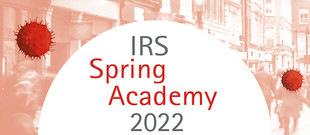Main Content
Face to Face Once Again
Looking Back on the 2022 IRS Spring Academy "Spaces of Infection"
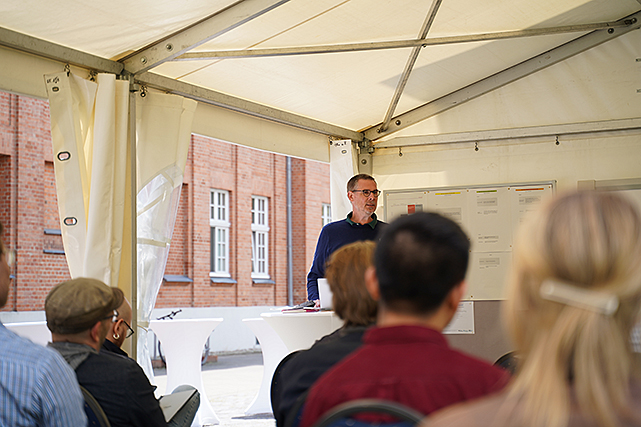
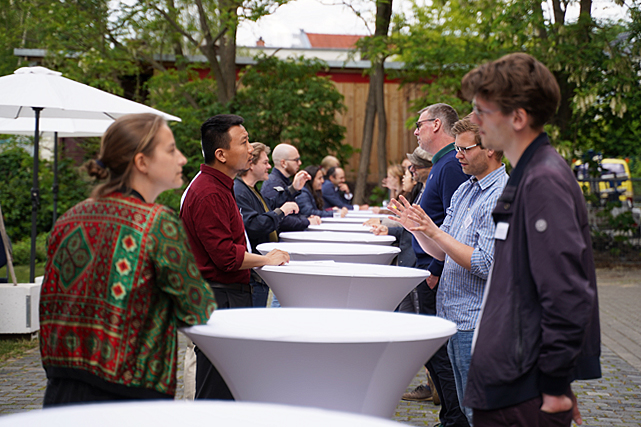
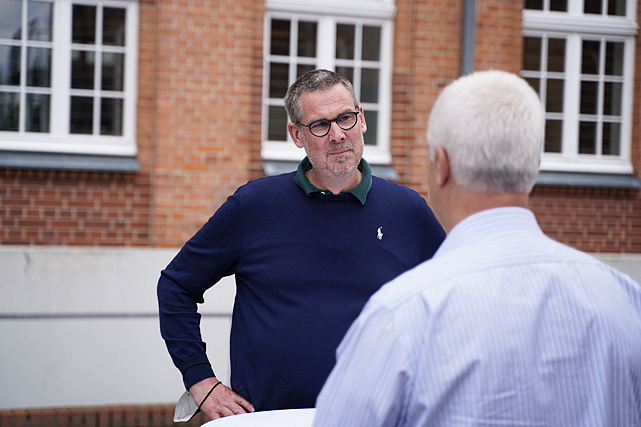
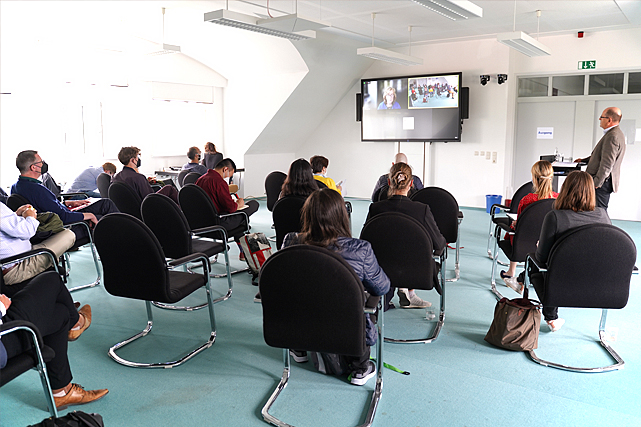
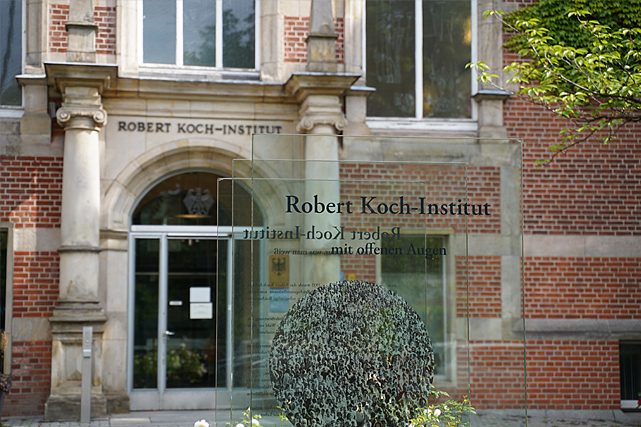
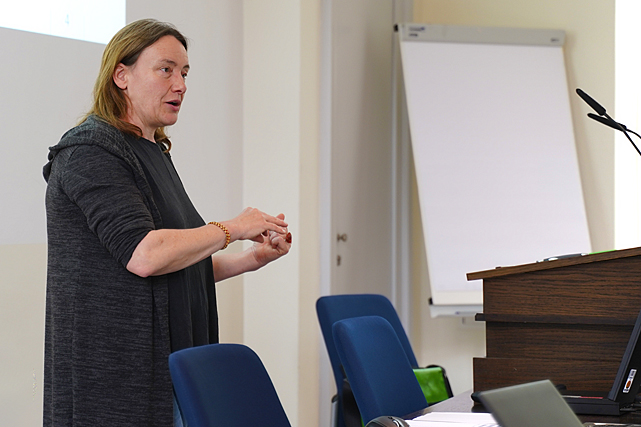
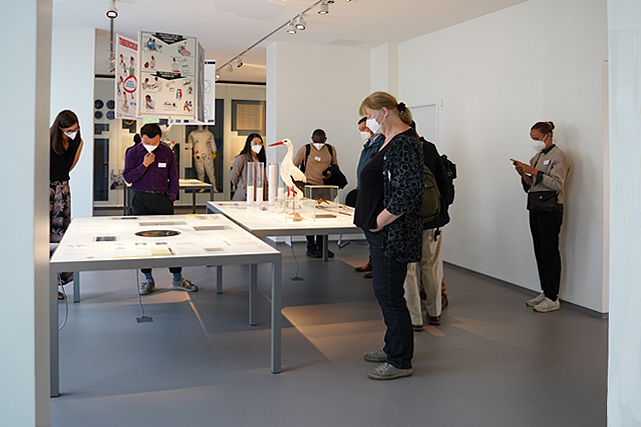
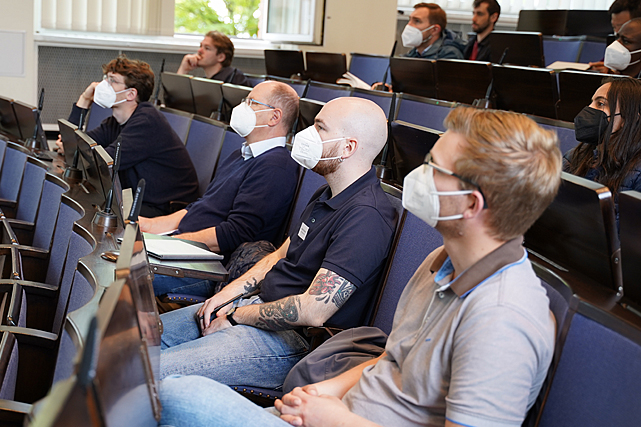
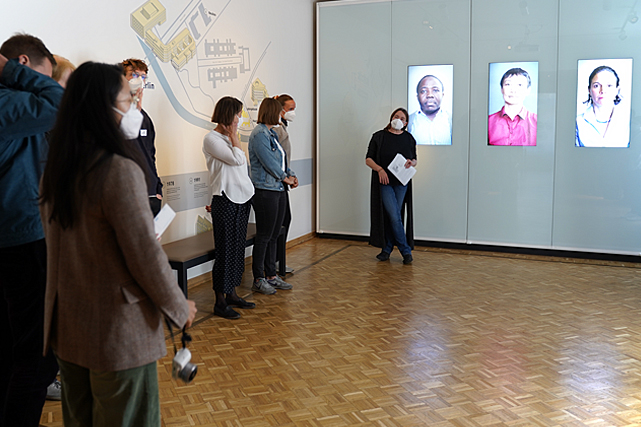
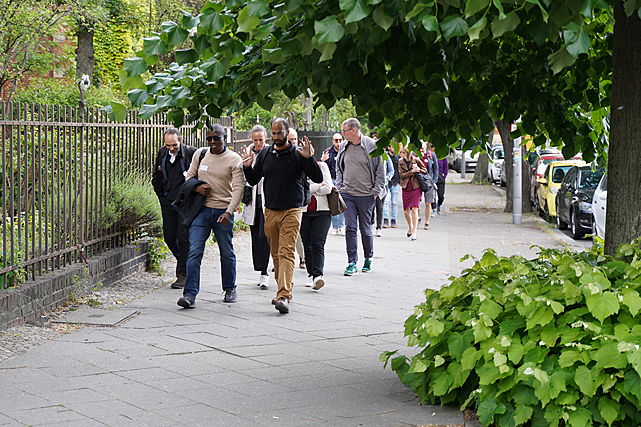

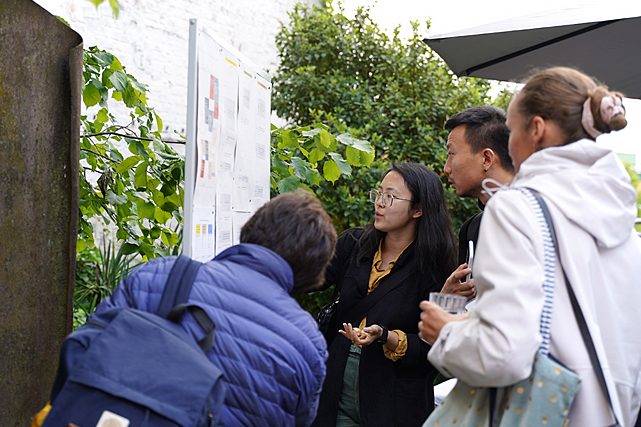
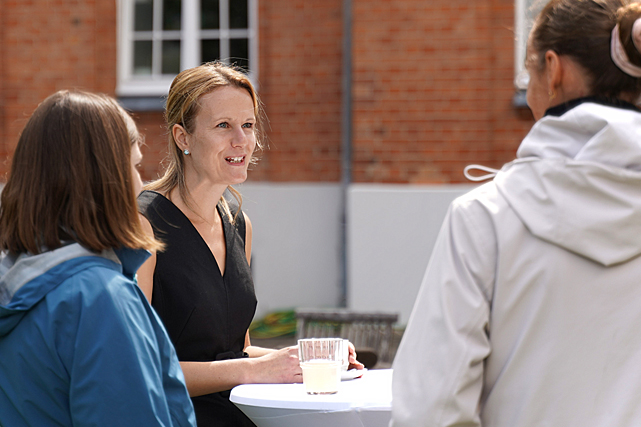
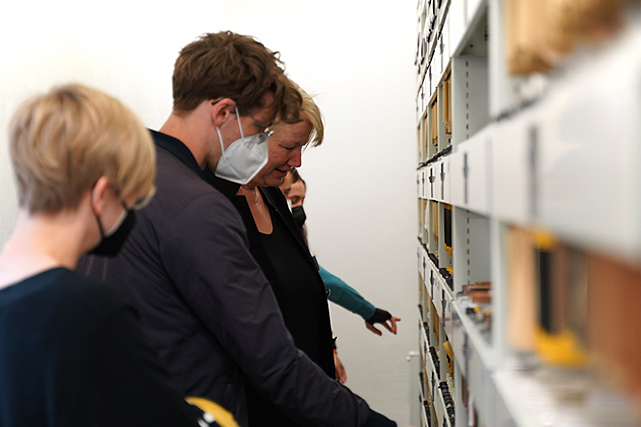
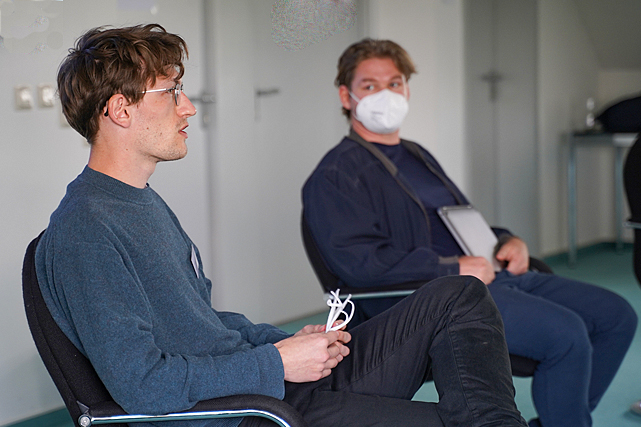
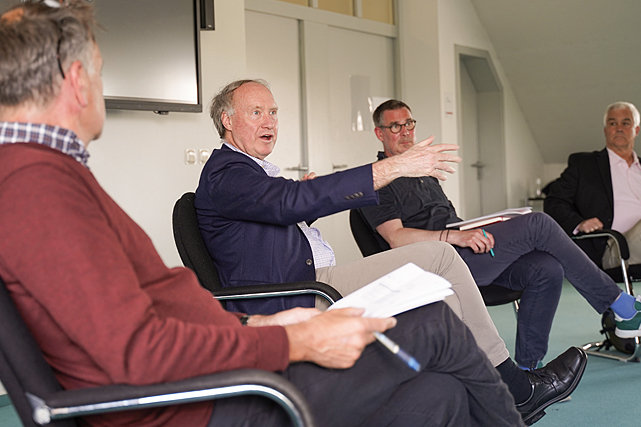
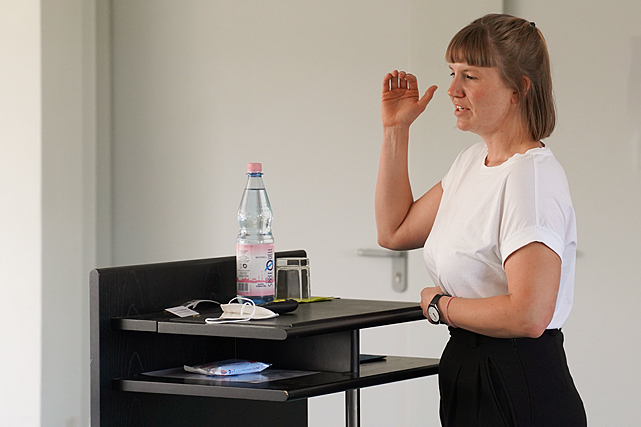
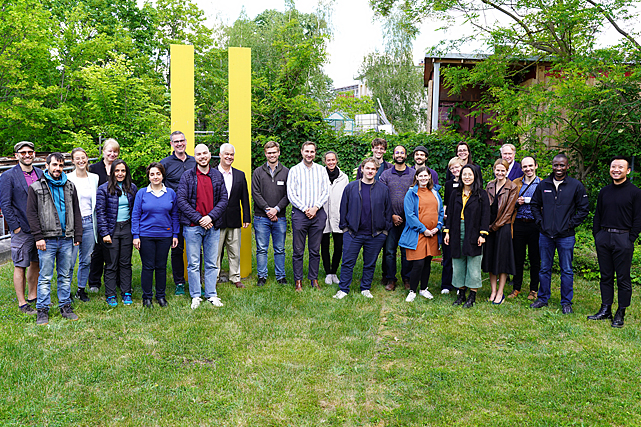
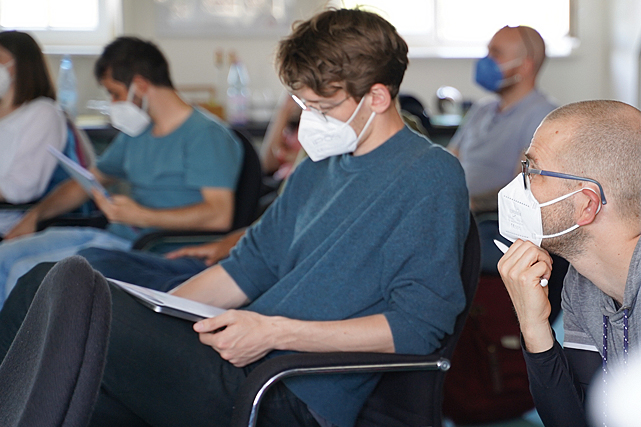
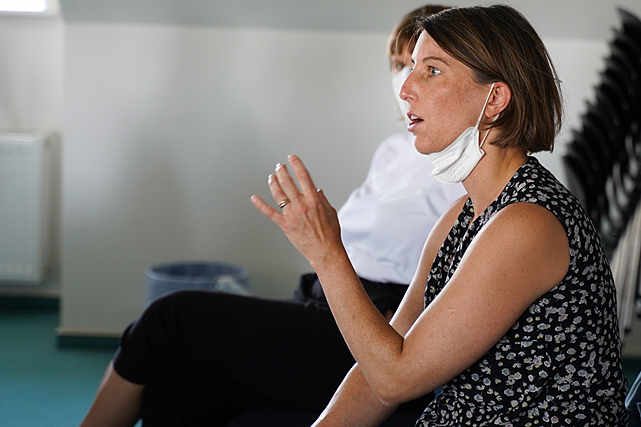
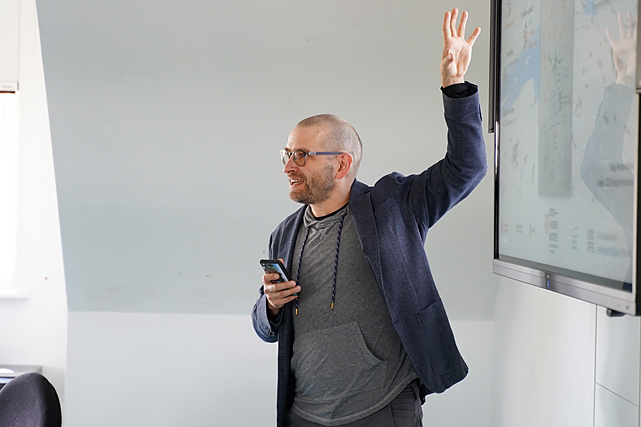
For the first time since the beginning of the COVID19 pandemic, the IRS Spring Academy took place again in Erkner and Berlin at the end of May 2022. The event series is aimed at international doctoral and post-doctoral researchers in the interdisciplinary field of spatial research. They get the opportunity to work intensively together on a topic, to exchange ideas across disciplines and to network. With its special mix of formats, the Spring Academy addresses the needs of researchers in the early stages of their careers. The theme of the Spring Academy 2022 was "Spaces of Infection". The Robert Koch Institute was the local partner.
Since 2017, the IRS has organised a Spring Academy "Investigating Space(s): Current Theoretical and Methodological Approaches" every year - with the exception of the Corona Year 2020. As the title suggests, the event series revolves around new conceptual, methodological and substantive approaches to space-related research in the humanities, social sciences and other research disciplines. The Spring Academy is aimed at international doctoral students and postdocs. Like a summer school - only in spring - it brings the typically 20 to 30 participants together in Erkner and Berlin to enable them to engage in intensive thematic discussion and productive networking; all this in a relaxed atmosphere and with an appealing accompanying programme, with shared evening activities, walks and thematically relevant site visits. The Spring Academy also offers direct contact with excellent international academics, from whom participants receive advice and support.
Reflecting on the Spatial Dynamics of Infectious Diseases
Each Spring Academy has a specific theme, for which a suitable local cooperation partner is brought on board. In 2021, an Academy on the topic of "Spaces of Crisis" was held exclusively online; the local partner was the German Red Cross. The Spring Academy 2022, which took place once again in physical presence from 31 May to 3 June, was entitled "Spaces of Infection". It was strongly influenced by the COVID19 pandemic and brought together perspectives from health geography, infection research and medical history. The local partner this year was the Robert Koch Institute in Berlin, the federal government's lead research institution for public health. The total of 29 participants and stakeholders spent one of four days entirely at the RKI, where they familiarised themselves with its history and mission and gained extensive insights into its research on infectious diseases from several experts - including, of course, COVID19. This showed that research on infections and epidemics works intensively with spatial typologies, and that researchers actively reflect on possible new conceptions of space. References to the distinction between topological, territorial and network-based spatiality, such as is made in human geography research, became visible.
The programme of the remaining three days took place at the IRS and included two keynote lectures. Karen Clay, Professor of Economics and Public Policy at the Heinz College of Information Systems and Public Policy at Carnegie Mellon University in Pittsburgh, spoke about the economic and health effects of the "Spanish Flu" of 1918 and 1919. She placed this pandemic in the historical development up to COVID19. Michael Emch, William R. Kenan Jr. Distinguished Professor of Geography and Epidemiology at the University of North Carolina at Chapel Hill, discussed the links between agricultural practices, especially pig farming, and the emergence of influenza virus pandemics. In another guest lecture, Franziska Kellerhaus and Natascha Bing from the German Red Cross reported on the strategies and practices of the Red Cross (or Red Crescent) in dealing with epidemics. They stressed the importance of permanent presence in affected places, because "epidemics begin and end in local communities".
Valuable Support for Early-Stage Researchers
A hallmark of the Spring Academy is its focus on research practice. In three Doing Research workshops, the participants were able to deal intensively with the practical challenges of different methodological approaches. In paper pitches, they received focused feedback on their own research and publication projects from the entire plenary. In a "Meet the Editors and Reviewers" panel, they gained deep insights into the editorial processes of journals, so that they can publish more purposefully and successfully in the future. Finally, all participants were given the opportunity to arrange individual consultations with the senior researchers involved.
As the final evaluation and numerous personal conversations showed, the participants also found this round of the IRS Spring Academy extremely useful and valuable. The special mix of interdisciplinarity, the focus on the space in connection with a specific topic, local cooperation, the intensive personal exchange, the advice from experienced seniors, and the good atmosphere on site were emphasised. The added value of a face-to-face event compared to a virtual event was more than clear, whereby it also became apparent that virtual presence - preparatory, accompanying and follow-up - is part of the new normality of face-to-face events.
The IRS Spring Academy 2022 was organised by Sarah Brechmann, International Affairs Officer at the IRS. The keynote lectures will be published on the IRS YouTube channel. Impressions of the course and content of the event can also be found on Twitter under the handle @IRSErkner or the hashtag #SpacesInfection22. At the IRS, a DFG project is also currently researching the spatial spread patterns of COVID19 in Germany. For information, please contact project leader Dr Andreas Kuebart (andreas.kuebart@leibniz-irs.de).


